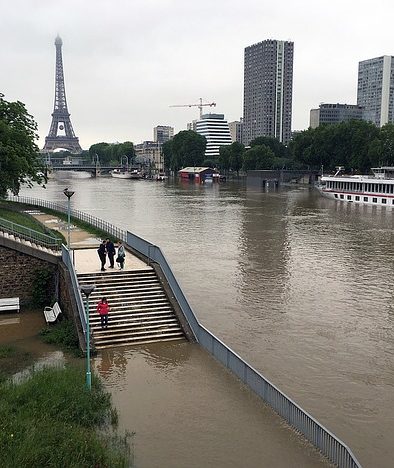To accelerate climate change adaptations that protect those areas vulnerable to flooding, the scientific community needs greater access to leading research facilities.
Bridging the gap between scientists and those who use their results to develop climate change adaptation measures, the EU-funded HYDRALAB-PLUS project is facilitating transnational access to research facilities. It is bringing European researchers together in joint research activities, creating a network that links scientists with industry partners, policymakers and other stakeholders.
Project coordinator Frans Hamer of Deltares in the Netherlands commented:
‘HYDRALAB-PLUS is helping authorities and societies adapt to climate change. Reducing flood risks will avoid enormous human and economic damage.’
‘New-generation researchers from all over Europe have been invited to carry out their experimental research in large and unique experimental facilities designed for flow, wave and ice research in institutes and universities they normally do not have access to.’
Cutting-edge activities
The project has selected 32 proposed transnational access projects via an open competition. These comprise multi-disciplinary, large-scale hydraulic experiments that aim to speed up the development of innovative and effective climate change adaptation measures.
The projects are conducting cutting-edge experiments in areas such as the interaction between vegetation and river-bank erosion, the increasing wave overtopping of coastal structures, and understanding new threats such as tsunamis created by falling ice walls.
Three joint research activities are strengthening the experimental hydraulic research infrastructure, to help build a stronger research community. These focus on physical modelling to understand climate change impacts and test potential adaptation strategies; landscape change and protective structures linked to ecology and extreme events; and promoting the reuse and free exchange of experimental data.
From the joint research activities, protocols and guidelines are made available for use throughout the climate change adaptation sector.
From research to practice
As a result of HYDRALAB-PLUS, industry partners are developing and testing new tools and methods to improve data collection and the analysis of hydraulic phenomena under more extreme climatic conditions. These include optical and acoustic sensors that are being evaluated across a range of hydraulic research facilities.
‘Hydraulic experimental research is an indispensable step toward sound and sustainable solutions for adaptation to climate change,’ Hamer continued. ‘However, experimental hydraulic research is confronted with new demands resulting from the need for climate change adaptation. One of the most urgent technical challenges is to extend traditional research, focusing on hydraulics and morphology, to include biology, ecology and nature-based solutions.’
The consortium has organised a series of workshops that bring together representatives from industry, policy development, regional and national authorities, multilateral climate change institutions and international research institutes from within and outside Europe.
‘Participating researchers form a lasting network of cooperation, which will be the basis of future progress,’ explained Hamer. ‘The networking activities have resulted in further cooperation initiatives, connecting research and practice. We aim to provide key results for policymakers in the field of flood risk.
The Netherlands is coordinating the € 9.9 million HYDRALAB-PLUS project which started in September 2015 and is due to conclude in August 2019. Other participating countries are Finland, Spain, France, Denmark, Romania, UK, Germany, Poland, Portugal, Italy, Spain.
Click here to visit the HYDRALAB-PLUS website

